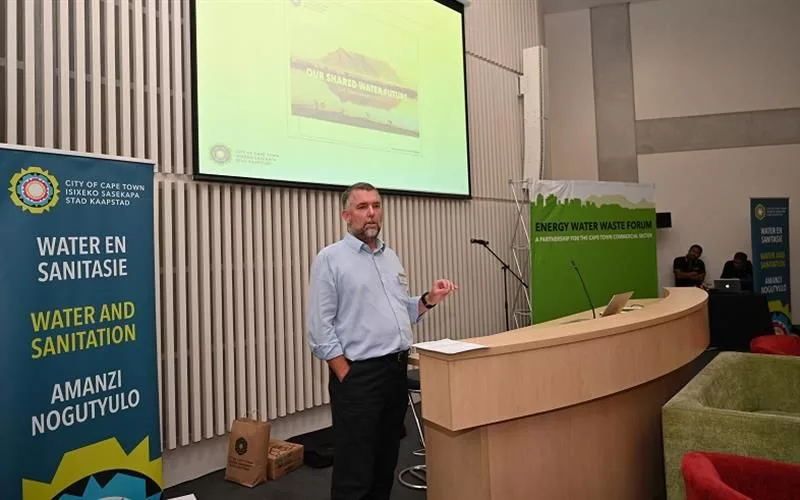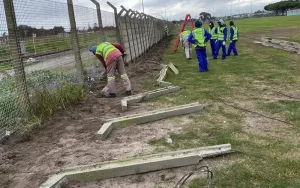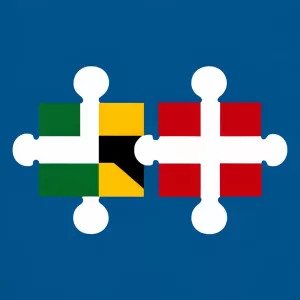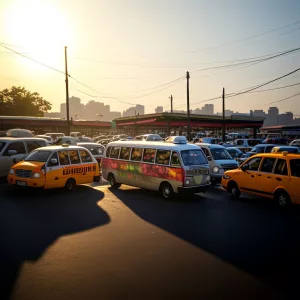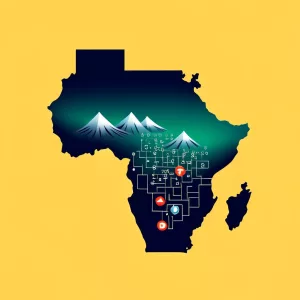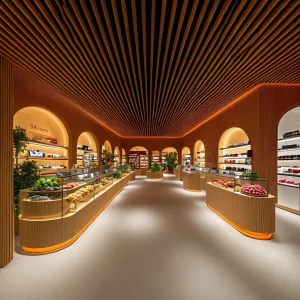Cape Town is on a mission to secure its water future with an exciting new plan called the New Water Programme. This big idea includes using seawater and recycling wastewater to boost the city’s water supply by 300 million liters every day by 2030. City leaders are working hard to involve the community and use the latest technologies, like advanced desalination, to make sure everyone’s needs are met. Cape Town’s efforts show how cities can adapt and thrive, setting an inspiring example for the world in the face of climate change.
The city works hard to keep parks, libraries, and clinics safe and open for everyone by using security guards, cameras, and strong fences. But people in the community play an even bigger role by watching out for trouble, cleaning up, and taking care of these shared spaces. When neighbors come together, these places feel welcoming and alive, full of laughter and life. Protecting public spaces isn’t just about stopping crime it’s about building trust and pride in the neighborhoods we call home. Together, the city and its people keep these places safe and bright for today and the future.
Every year on July 25, Cape Town joins the world to remember those lost to drowning and to teach water safety. At the historic Long Street Indoor Swimming Pool, children and families learn important skills like swimming, floating, and spotting dangers in the water. Lifeguards and city leaders come together to share knowledge and encourage everyone to stay safe near oceans, rivers, and pools. The day is full of fun, learning, and hope, as Cape Town works hard all year to keep its community safe around water.
On August 9, 2025, Cape Town Metro Police made a big drug bust in Fisantekraal, finding nearly 3.5 kilograms of dagga and arresting many people that week. This raid shows how the city is fighting hard against drugs, but also struggles with keeping communities safe and working with justice systems that sometimes fail. Behind the numbers are real stories of families and neighborhoods caught between hope and hardship. Cape Town’s battle against drugs is a tough, ongoing fight where police and citizens must work together to bring safety and peace to their streets.
The Enduring Impact of Student Debt: NSFAS and the Struggle for Equity in South African Universities
NSFAS helps many South African students from poor backgrounds go to university by paying for their fees and living costs, giving them hope for a better future. But this support comes with heavy debt that can be hard to repay, causing stress and hardship for graduates and the system alike. Many students struggle daily with poor housing and delayed payments, making their studies even tougher. To keep helping more young people, NSFAS now works hard to collect repayments fairly, encouraging graduates to give back so others can also get a chance. This ongoing struggle shows the deep link between education, fairness, and the shared dreams of a nation.
The South AfricanTunisian collaboration has been a bright example of how teamwork in science can empower women. By sharing research, offering mentorship, and providing funding, both countries support women to thrive in science and lead innovation. Tunisia’s strong focus on gender equality inspires South Africa, while South Africa’s programs help women break barriers in STEM. Together, they show how science and friendship can open doors for women, creating fairer, smarter futures for everyone.
In Cape Town’s Helderberg Basin, minibus taxis are a lifeline for many, but fierce battles between rival taxi groups make daily travel dangerous. These fights over routes cause fear and disrupt the simple act of getting to work or school. The city tries to keep peace, but the taxi industry’s complex history and loose rules make solutions hard. Despite the challenges, the taxi ranks remain a hub of community life, full of resilience and hope for safer, fairer rides ahead.
South Africa is setting an exciting new path to transform its tourism by making travel easier, safer, and more diverse. The new Tourism Execution Lab brings together leaders to create fresh ideas and strong partnerships, aiming to boost jobs and share real, local stories beyond famous spots like Table Mountain. With a focus on technology, safety, and celebrating hidden gems like townships and wellness retreats, South Africa wants every visitor to experience its true spirit. This bold plan hopes to grow the industry while lifting up communities and inspiring hope for the future.
Nandi Nyembe was a strong and talented South African actress whose work over fifty years touched many hearts. From her tough beginnings in Soweto, she used her roles in shows like *Zone 14* and *Isibaya* to tell real stories about life, struggle, and hope. Even when she faced hardships herself, including health and financial struggles, she remained brave and spoke out for artists’ rights. Nandi’s life and art continue to inspire people, showing how powerful storytelling can bring people together and spark change. Her legacy shines as a symbol of courage, talent, and the fight for dignity.
Mentorship gives fatherless boys in South Africa a chance to find strong, caring men who guide them with kindness and respect. These mentors help boys build confidence, learn important values like courage and honesty, and discover what healthy masculinity really means. Through fun activities and close support, the boys find belonging and hope, breaking free from cycles of pain and anger. This growing movement is lighting a path toward a better future for these boys and their communities.
Along Cape Town’s Atlantic coast, people and wildlife live side by side with kindness and care. Surfers and locals watch African penguins from a distance, help clean the beaches, and support groups working to protect endangered animals. One magical morning, a curious penguin even hopped onto surfers’ boards, showing a gentle bond between humans and nature. This special connection reminds everyone that protecting Cape Town’s wild coast is a shared job, filled with wonder and hope for the future.
Legal advisers in South Africa’s Parliament work quietly but powerfully to make sure all laws follow the Constitution. They check bills carefully, give fair legal advice, and stand strong for democracy. Recently, when their skills and honesty were questioned, the Speaker defended them, reminding everyone how vital their work is for keeping the rule of law alive. These advisers are the unseen heroes who help guide tough decisions and keep South Africa’s democracy steady and fair.
President Cyril Ramaphosa urged the world to invest deeply in the health and dignity of women, children, and adolescents, calling it the key to stronger, fairer societies. He painted vivid pictures of struggles faced by mothers and young people in remote places, reminding us that every life saved shows the power of determined leadership. Ramaphosa highlighted the need for universal health care, education, and reproductive rights, insisting these are not just policies but acts of justice. His message shines as a hopeful call: caring for the most vulnerable builds peace, prosperity, and a better future for all.
Slow travel in Cape Town is all about taking your time to really feel the city’s spirit. Instead of rushing through famous spots, you soak up local life by chatting with residents, enjoying slow meals, and wandering colorful neighborhoods like BoKaap. You might linger in cozy cafés, explore nature’s beauty, or join community events, making each moment rich and memorable. This gentle pace helps you connect deeply with Cape Town’s people, culture, and stunning landscapes, turning your trip into a true adventure of heart and mind.
Woolworths Tyger Valley is changing the way South Africans shop by blending food, fashion, beauty, and home in one bright, welcoming space. With ecofriendly design and special touches like free tailoring and denim engraving, it makes shopping feel personal and fun. The store is a lively community hub where people come not just to buy, but to explore, learn, and connect. It shows how modern stores can care for the planet and people, making every visit a special experience.
The 67 Kids to School campaign is a heartfelt effort by students at SACS High School to help underprivileged children in the Western Cape get ready for school. Every year, they raise money to buy uniforms, bags, and school supplies for at least 67 learners, inspired by Nelson Mandela’s legacy. The students don’t just raise funds they personally buy and deliver the items, meeting the children and building connections. This handson approach teaches empathy, teamwork, and leadership, showing how small, caring actions can open doors to a brighter future for many kids.

